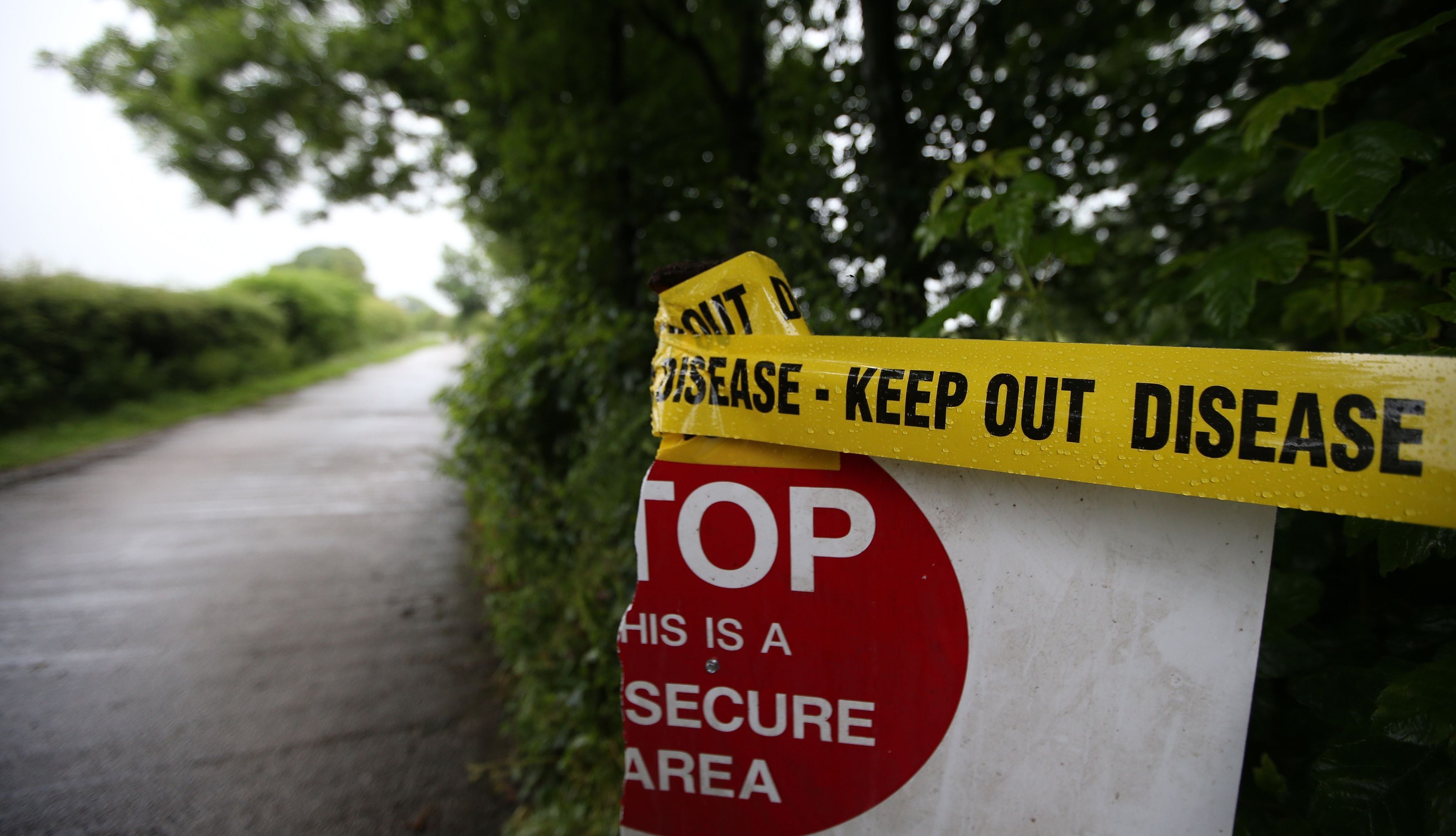Avian flu found at third premises in Scotland
A 3km protection zone has been put around the premises in Dumfries and Galloway.

Your support helps us to tell the story
From reproductive rights to climate change to Big Tech, The Independent is on the ground when the story is developing. Whether it's investigating the financials of Elon Musk's pro-Trump PAC or producing our latest documentary, 'The A Word', which shines a light on the American women fighting for reproductive rights, we know how important it is to parse out the facts from the messaging.
At such a critical moment in US history, we need reporters on the ground. Your donation allows us to keep sending journalists to speak to both sides of the story.
The Independent is trusted by Americans across the entire political spectrum. And unlike many other quality news outlets, we choose not to lock Americans out of our reporting and analysis with paywalls. We believe quality journalism should be available to everyone, paid for by those who can afford it.
Your support makes all the difference.Avian flu has been found at a third premises in Scotland amid the “largest-ever outbreak in the UK”.
The Scottish Government said that the highly pathogenic avian influenza H5N1 was confirmed at a premises near Annan in Dumfries and Galloway on December 9.
A 3km protection zone and 10km surveillance zone (SZ) have been declared around the premises, which means movement restrictions within these zones – on things such as poultry, carcasses, eggs, used poultry litter and manure – to prevent any further spread of disease.
It comes after avian flu was confirmed at premises near Gretna in Dumfries and Galloway on December 3 and at a premises near Arbroath, Angus, on November 4.
Do not touch or pick up any dead or sick birds that you find
Officials said public health advice is that the risk to human health from the virus is very low.
Rural Affairs Secretary Mairi Gougeon said: “We know that avian influenza is here in Scotland. In order to try to keep their birds safe and stop the spread of the disease, producers and bird keepers are reminded to comply with the order to house birds, which came in to effect on November 29, or to ensure their birds are kept separate from wild birds.
“It’s important that the public remain vigilant and report any findings of dead wild birds to Defra’s national telephone helpline. Do not touch or pick up any dead or sick birds that you find.”
Bird keepers have been told to report any suspicion of disease in Scotland to their local Field Services Office.
Scotland’s chief veterinary officer Sheila Voas said: “We have already made clear that all bird keepers – whether major businesses or small keepers with just a few birds – must ensure that their biosecurity is up to scratch to protect their birds from disease and prevent any contact between their birds and wild birds. Keepers who are concerned about the health or welfare of their flock should seek veterinary advice immediately.
“Your private vet, or your local Animal and Plant Health Agency office, will also be able to provide practical advice on keeping your birds safe from infection.
“Any dead wild swans, geese, ducks or birds of prey, or five or more dead wild birds of other species (including gulls) in the same location at the same time, should be reported to Defra’s national telephone helpline.
“Public health advice is that the risk to human health from the virus is very low and food standards bodies advise that avian influenzas pose a very low food safety risk for UK consumers, and it does not affect the consumption of poultry products including eggs.”
UK Environment Secretary George Eustice has said that every year the UK faces a seasonal risk in incursion of avian influenza associated with migratory wild birds.
However, he said that this year the country is now seeing the “largest-ever outbreak in the UK of avian influenza”.
Around 40 cases have been identified around the UK.